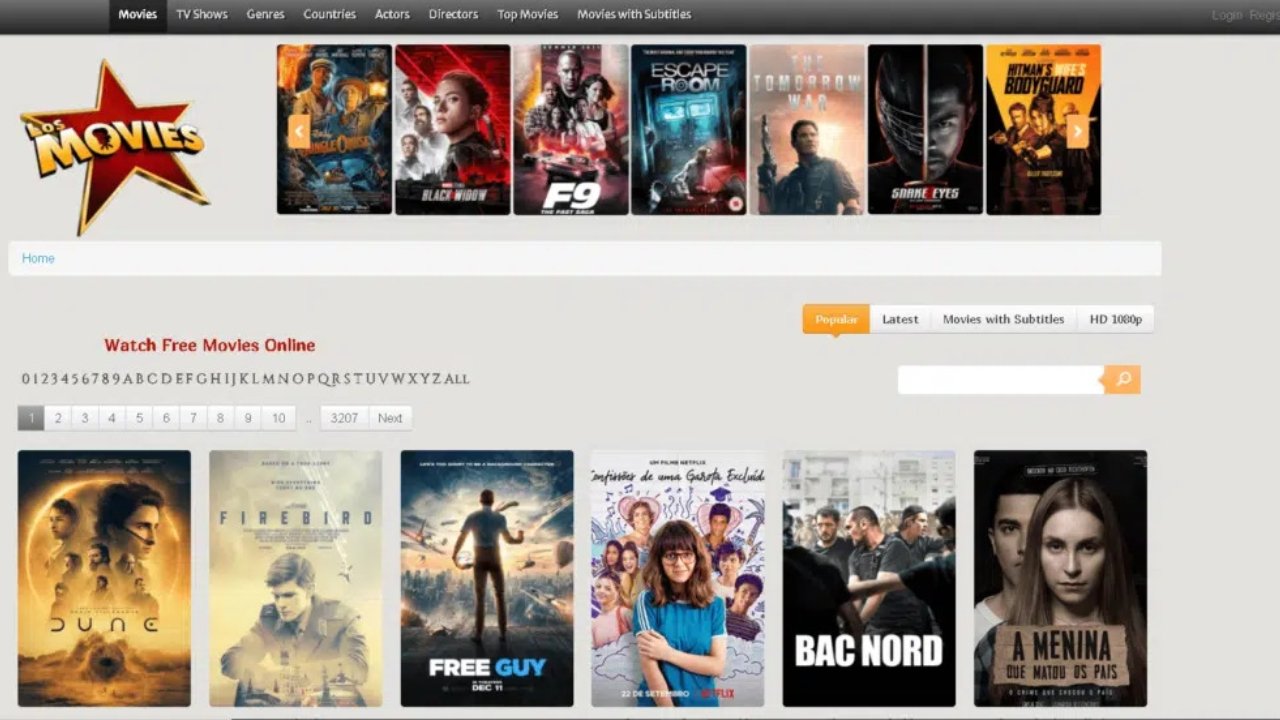Los Angeles, often simply called “Los,” is the beating heart of the American movie industry. When people talk about Los movies, they refer not only to films made in this iconic city but also to the distinct cultural flavor that LA brings to the big screen. From classic Hollywood blockbusters to independent gems, Los movies capture the spirit, diversity, and dynamism of this sprawling metropolis. For American audiences, understanding the influence and appeal of Los movies offers a window into how cinema reflects the city’s complex identity and evolving narratives.
What Defines Los Movies? A Deep Dive into LA’s Cinematic Identity
When we say “Los movies,” we’re discussing films that are either set in Los Angeles or deeply influenced by its unique atmosphere and culture. These movies range across genres, styles, and decades, yet they often share certain thematic elements. The sprawling urban landscape, the glitz and grit of Hollywood, the multicultural tapestry of neighborhoods, and the dream-chasing ethos all figure prominently.
Los movies frequently explore contrasts: wealth and poverty, dreams and disillusionment, fame and anonymity. Films like La La Land celebrate the romanticism of chasing dreams, while Drive captures the darker underbelly of the city. Additionally, these movies often present LA as a character itself, influencing both story and mood. For example, the neon-lit streets of downtown Los Angeles or the sun-drenched beaches of Santa Monica are more than mere backdrops—they’re vital to the narrative.
On Reddit, fans regularly discuss how the city’s portrayal evolves across decades, reflecting real societal changes such as gentrification, immigration, and urban sprawl. This ongoing dialogue shows how Los movies do more than entertain—they spark thought about real-life issues in LA.
Iconic Examples of LA Films and Their Impact
Several Los Angeles–set films have become cultural landmarks, shaping how audiences view the city and its stories. Chinatown (1974) stands out as a neo-noir classic delving into corruption and mystery during the city’s water wars, while Boyz n the Hood (1991) offers an unflinching look at life in South Central LA, highlighting issues of race, violence, and community.
Another seminal example is Pulp Fiction (1994), which showcased the city’s diverse subcultures and interconnected narratives, influencing filmmakers around the world. Meanwhile, The Big Lebowski (1998) blends comedy and crime to portray LA’s eccentric characters in an idiosyncratic way.
Importantly, these films don’t just tell stories about Los Angeles—they help shape the city’s mythos. Hollywood’s portrayals have attracted generations of filmmakers, actors, and dreamers hoping to make their own mark on LA’s storied landscape.
The Diversity of Los Angeles Cinema: From Blockbusters to Indie Films
LA cinéma spans a huge spectrum, from high-budget blockbusters to indie productions offering fresh, diverse perspectives. While big studio films often highlight Hollywood glamour, independent features tend to explore nuanced, personal stories that give voice to underrepresented communities.
For instance, indie movies like Pariah (2011) and Eighth Grade (2018) deliver intimate portrayals of identity and adolescence against the backdrop of LA’s multifaceted society. These works broaden the scope of Los Angeles cinema by going beyond the traditional Hollywood lens.
Moreover, the rise of streaming platforms has breathed new life into LA filmmaking, enabling storytellers to reach audiences directly. This shift democratizes distribution, allowing unique LA stories to gain wider attention without the constraints of major studios.
Expert Insight: The Cultural Significance of LA Films
“Los movies serve as a cultural mirror, reflecting the city’s ongoing social evolution while also shaping the American cinematic imagination.”
— Dr. Susan Martinez, Film Studies Professor
Martinez’s perspective highlights how LA films function both as art and social commentary. By weaving the city’s diverse experiences into storytelling, these movies invite viewers to engage with complex realities and celebrate LA’s rich cultural fabric.
Los Movies and American Audiences: Why They Matter Today
For American audiences, Los Angeles cinema is more than entertainment—it provides insights into a city symbolic of aspiration, struggle, and diversity. Especially in today’s polarized cultural climate, these films promote empathy and understanding by portraying a broad range of experiences.
On Reddit, users often debate how modern LA films address issues like immigration, economic disparity, and cultural identity. These conversations demonstrate a growing appreciation for movies that capture LA’s true stories beyond glossy facades.
Furthermore, Los Angeles cinema inspires many Americans by showing that despite challenges, the city remains a place of opportunity and transformation. This message resonates nationwide, reinforcing LA’s image as a beacon of hope and creativity.
Conclusion: Celebrating the Ever-Evolving Legacy of Los Movies
LA movies hold a unique place in American cinema, blending Hollywood glamour with the city’s vibrant, complex realities. Through a rich variety of genres and voices, these movies continue to capture the spirit of Los Angeles and its influence on culture and society. For audiences eager to understand both the city and the art it inspires, exploring Los movies is an essential journey. They remind us that behind the bright lights and palm trees lies a multifaceted story of dreams, diversity, and determination—one that continues to unfold with each new film.Whether you’re a longtime fan or just discovering this cinematic treasure trove, Los movies offer an engaging window into the heart of America’s entertainment capital.

